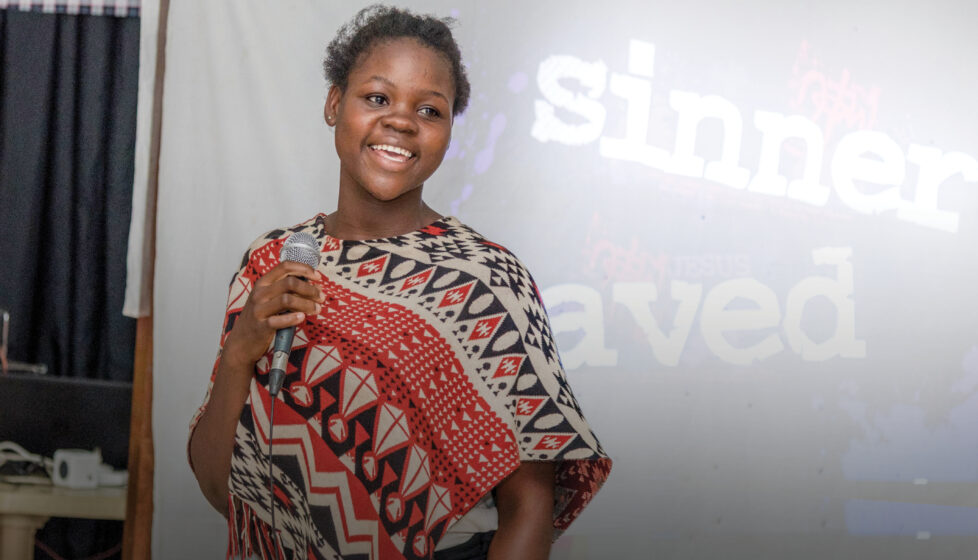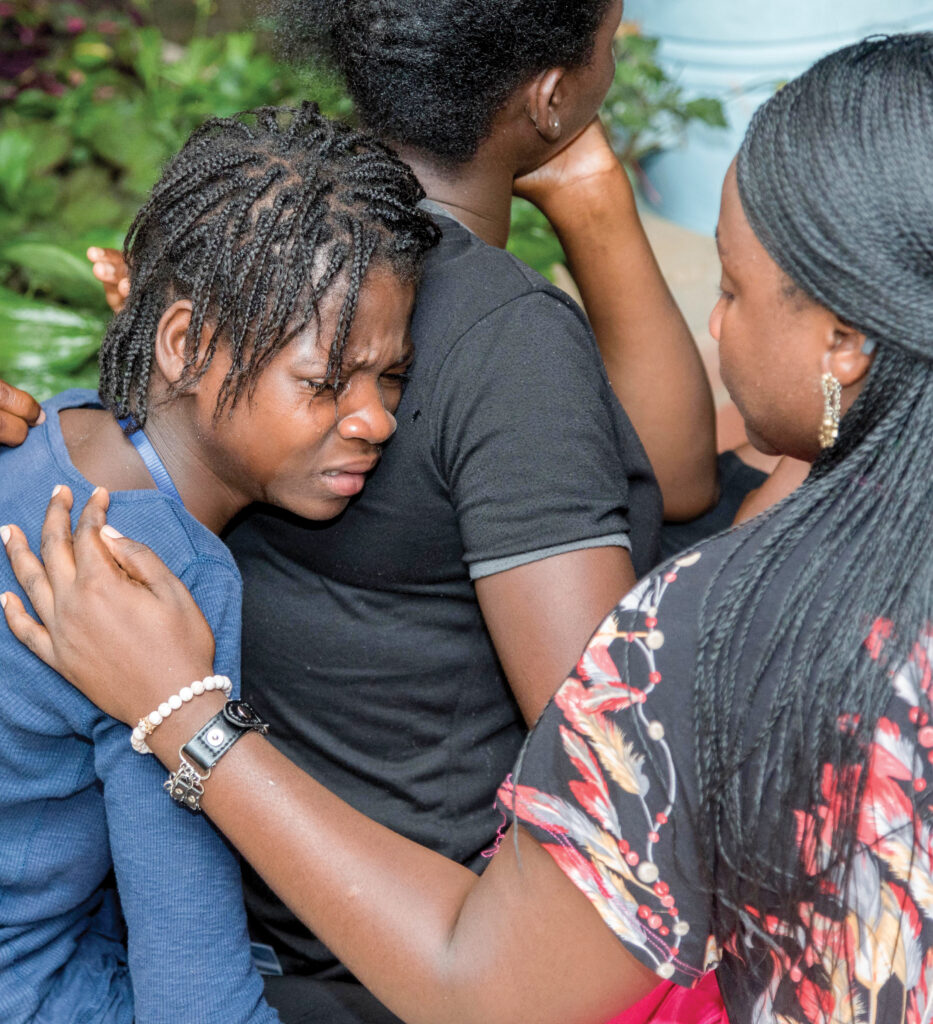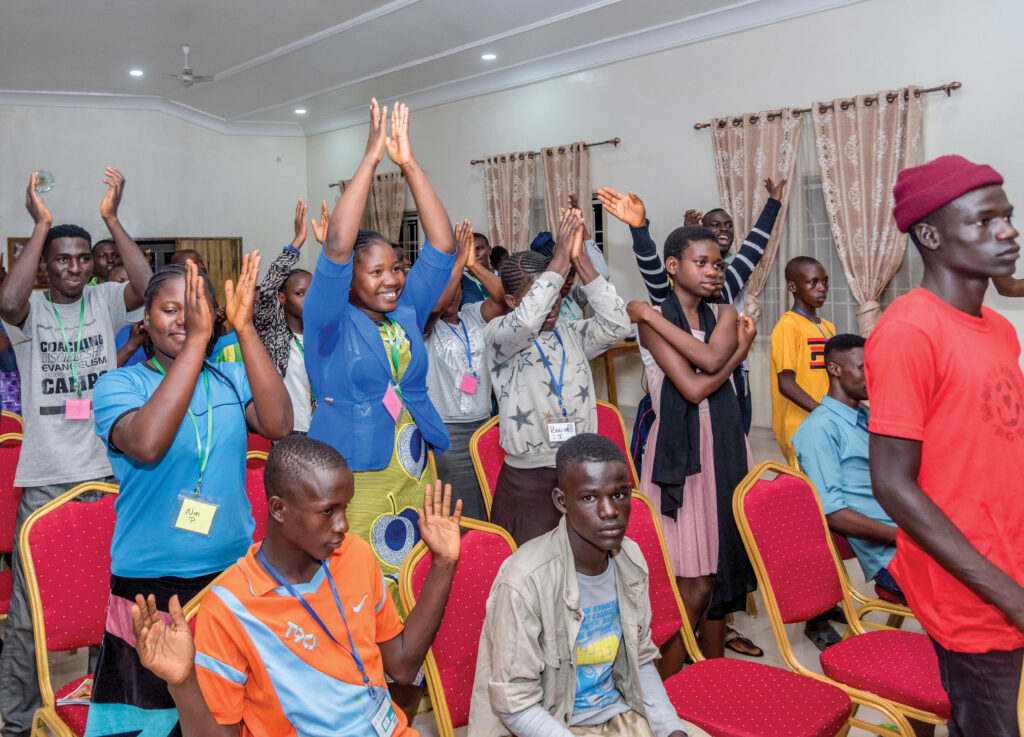Boko Haram Murders Nigerian Husband, Father of 9
Nigeria

How a young woman overcame the pain of losing her father and forgave his murderers
On the evening before Easter Sunday 2012, Comfort Jessy sat in the enclosed courtyard of her home in Nigeria chatting with her parents, older siblings and some neighbors. Around 11 p.m., they heard bombing in the distance, and less than 60 minutes later, Boko Haram militants were burning the church next door and pounding on the gate in front of their home.
Comfort’s mother, Juliana, helped her husband hide in one of the back bedrooms, covering him with clothes. “God, we are in Your hands,” she prayed. Several militants entered to search the house while others dragged Juliana into the courtyard, striking her with their guns and taunting her about her faith. “You Christians say God has a son,” they said. “Call on that son! Today is your last day; your own life is over.”

They then forced Julianna to kneel. “They said that if they don’t get their man, they will kill her,” Comfort said. “My mother said, ‘Even though I see your gun, I will not fear you.’”
One of the men gave a shout from inside the house — he had found Comfort’s father. They dragged him out to the courtyard and instructed him to renounce Christ. He remained silent, while Juliana’s mother shouted, “Jesus!”
The militants ordered Comfort’s father to lie down, and then they shot him four times. Before leaving, they ransacked and burned their home. Juliana pulled her dying husband into her lap and prayed; he uttered a final “amen” at the end of her prayer before dying. Comfort, who was 13 at the time, sat by her father’s body with her eight siblings, crying in the early morning darkness.

Campaign Against Christians
The Boko Haram fighters attacked the town in Adamawa state that night as part of their campaign to establish an Islamic government across northern Nigeria. Ever since the 2011 election of Goodluck Jonathan, a Christian, as president, the Islamist group had staged frequent attacks against both political targets and Christians throughout the northern states. In January 2012, Boko Haram issued a warning for all southern Nigerians (meaning Christians) to leave the north. Comfort’s family was among the first to pay the price for staying.
She and her family took her father’s body to his hometown to bury him, hoping his family would help them. But instead, his family rejected them. Comfort, her eight siblings and their mother were homeless until her mother managed to scrape together enough funds to build a simple shelter. But within a few months, Boko Haram attacked again, burning their rebuilt house.
This time the family fled the area, walking through the bush for three days to reach a camp for displaced people. They stayed in the camp for more than a year, but they struggled to buy food, and none of the children were able to attend school. Finally, they were referred to a VOM-supported training center for widows and orphans.
Working Through Anger and Forgiveness
Juliana received training and spiritual guidance, while Comfort and her siblings joyfully enrolled in school. But Comfort carried scars from the trauma and losses she had suffered. If a family member shouted at her, she would spend the entire day in her room and refuse to eat. “I slept with so much anger and pain in my heart,” she said.
Children of Christians who have been killed in the ongoing violence struggle emotionally and spiritually to recover from their losses. While their physical needs can be quickly addressed, the deeper emotional and spiritual needs are more difficult to resolve. “A generation of Christians is growing up with hatred, unforgiveness and a desire to take revenge,” a VOM worker said.

In 2018, Comfort and three of her siblings attended a youth camp that VOM hosted for teenagers who had suffered similarly traumatic experiences. Many of the young people had suffered not only persecution but also rejection, either from family members or a community that despised them because they were poor or parentless. The teens were discipled by mature Nigerian believers who taught them what the Bible says about forgiveness, hatred and their worth as children of God.
Some of the teens said it was the first time in a long while that they had felt like equals. Comfort met a girl her own age whom she now calls her best friend, and she does not feel alone anymore. The weeklong retreat gave Comfort a Christ-centered perspective on forgiveness. On one of the final nights of camp, many of the teens gave testimonies of how God was working in their lives. Some were in tears as they surrendered their anger and hate toward Boko Haram.
In the years since attending the youth camp, Comfort has been able to let go of her anger and even to pray for Boko Haram. “I begged God to forgive them, because they did not know what they were doing,” she said.
With VOM’s help, the family has moved into a new home in the same city as the training center. The children are doing well in school, and Comfort, now in her twenties, is working toward university admission. She hopes to one day work in banking.
Every morning, Comfort and her family gather for devotions and to thank God for the help they have received. Comfort said she loved God before but has grown in faith through her trials. “I didn’t really hold onto God as I am right now,” she said. “I love God now more than in the past.”


 Guide
Guide